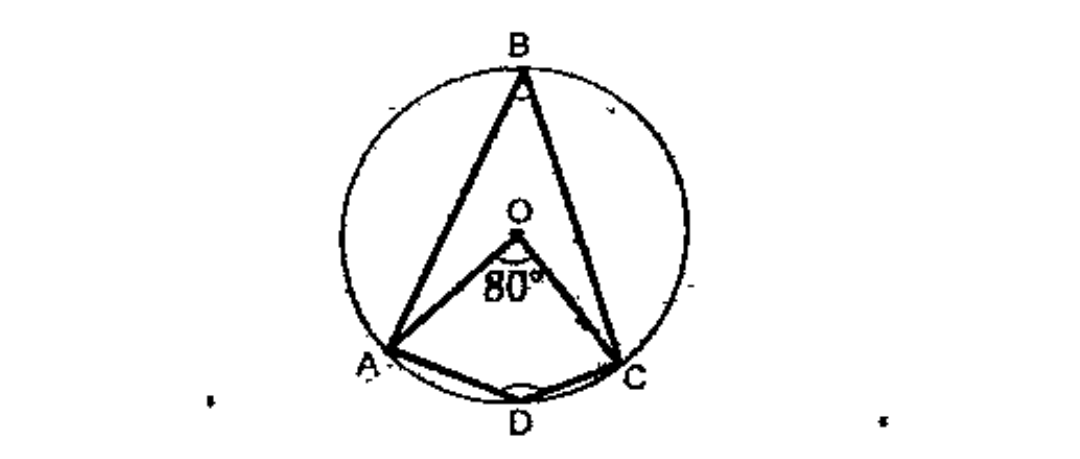What is the common difference of the arithemetic sequence x−1,x,x+1,.......?Solution in Malayalam
Step by step video & image solution for What is the common difference of the arithemetic sequence x-1,x,x+1,.......? by Maths experts to help you in doubts & scoring excellent marks in Class 10 exams.
Updated on:21/07/2023Topper's Solved these Questions
Similar Questions
In the figure O is the centre of circle. □AOC=80o
What is the measure of □ABC?
 .
.
View SolutionIf x is a positive real number different from 1, then prove that the numbers 11+√x,11−x,11−√x,, are in A.P. Also find their common difference.
View SolutionIf the equations x^(2)+bx-1=0 and x^(2)+x+b=0 have a common root different from -1 then |b| is equal to
View SolutionIf f(x)=(1)/(x+1) And g(x)=(1)/(sqrt(x)-1) Find the common domain of f and g.
View SolutionIf the equation x2+bx−1=0 and x2+x+b=0 have a common root different from -1 then |b| is equal to
View SolutionIf x is a positive real number different from 1, then prove that the numbers 11+√x,11−x,11−√x,, are in A.P. Also find their common difference.
View Solution(1+x+x2) और 1−x3 का महत्तम समापवर्तक होगा
View SolutionWrite the first term and the common difference of the arithemetic sequence whose algebraic expression is 3n+5.
View SolutionFirst term of an arithemetic sequence is 8 and the common difference is 5. Write its algebraic form.
View SolutionArrange the expansion of (x1/2+12x1/4) in decreasing powers of x. Suppose the coefficient of the first three terms form an arithemetic progression. Then the number of terms in the expression having integer powers of x is -
View SolutionIf the equations x2+bx−1=0 and x2+x+b=0 have a common root different from −1 then |b| is equal to
View SolutionCan the difference between any two terms of an arithemetic sequence having common difference 6 be 2016? Justify your answer.
View SolutionWhat is the common denominator of the parallel series x-1, x, x + 1 .......?
View Solutionx-1, x, x + 1, ... എന്ന സമാന്തര ശ്രേണിയുടെ പൊതു വ്യത്യാസം എത്രയാണ്
View SolutionIf x is a positive real number different from 1, then prove that the numbers 1/(1+sqrt(x)),1/(1-x),1/(1-sqrt(x)), , are in A.P. Also find their common difference.
View Solution
